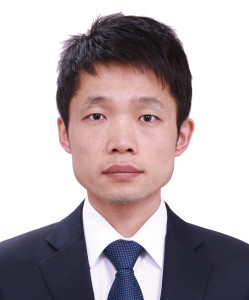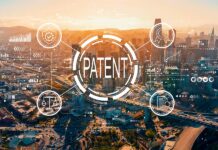The Beijing Intellectual Property Court (BIPC), which has jurisdiction over administrative litigation concerning patent re-examination and invalidation, handles a substantial number of patent administrative cases each year. In 2016, the court accepted 2,184 and concluded 1,341 technology-related cases. Although the court’s concluded cases grew a hefty 90% from 2015, it is still under enormous pressure to reduce the backlog, of which patent administrative cases account for a considerable proportion. Given the limited number of judges, most of whom only have legal knowledge, the ascertaining of technical facts has a pivotal impact on the trial efficiency and fairness.

Patent Counsel
Wanhuida Peksung IP Group
To reduce the case backlog, the court introduced, during proceedings, the use of technical investigators and jurors with technical expertise.
Compared with technical investigators, jurors with technical expertise advise courts on both technical and legal matters in patent administrative cases and tend to be appointed more flexibly.
Since 2014, technical investigators have been extensively involved in patent-administrative cases, though not without problems. Merely tasked with unravelling technical facts, such investigators could be held back in patent-administrative proceedings, where technical fact finding and legal application matters are often intertwined. Moreover, technical investigators are a limited human resource. As far as the BIPC is concerned, the vast majority of cases have five technical investigators as advisers, who are not even part of its permanent staff.
Jurors with technical expertise refer to people’s jurors with the knowledge and skills of their trade and field to equip them with the capacity of technical analysis and cognitive competence. Jurors with technical expertise may raise questions and state their opinions in respect of fact finding and the application of laws. In accordance with the provisions of the Law on People’s Juror, the court may form a panel of people’s jurors no less than three times the number of its judges. This gives the court more liberty to choose jurors with technical expertise from a pool of candidates.
In judicial practice, jurors with technical expertise have been helpful in improving efficiency and ensuring fairness.
This article will use an example to illustrate how jurors with technical expertise assist judges in rapidly ascertaining technical facts and making judgment calls in an administrative litigation of patent invalidation.
The case involved a cooking device, which went through eight rounds of invalidation applications. In the ninth round, the Patent Re-examination Board overturned its prior finding, opining that the patent at issue was neither novel nor had an ample inventive step. The patentee filed an administrative litigation before the BIPC. The collegiate panel of the case comprised a judge and two people’s jurors, whose understanding of the technicality of the case insinuated that the pair had technical expertise in the mechanical field.
During the court hearing, the parties concerned had a heated argument on the difference between the patent at issue and the prior art. After listening to the opinions of the parties, the jurors summarized the focus of controversy as “whether it is necessary to add grease in the cooking device of the prior art during the cooking process”, for which the parties were instructed to present their defence. Moreover, when deciding if the patent at issue involved an inventive step, the jurors held that it was the fact that “the cooking device of the patent at issue can be assembled with components of the prior art”. However, “since any new product can be obtained through assembling in the mechanical field, it would be untenable if the creativeness of the patent at issue simply hinges on the fact of whether the patented device could be assembled”.
The BIPC made a first-instance judgment to revoke the invalidation decision of the Patent Re-examination Board.
PRACTICAL ADVICE
The following tips are given to help readers cope better with this new practice of the court.
- Always check whether recusal of the jurors is required. Jurors with technical expertise are involved in the substantial adjudication of the case. Therefore, it is necessary to verify whether there is any recusal circumstance.
- Elaborate on the technical facts and application of laws to jurors with technical expertise. Although the BIPC has provided training sessions on patent law to these jurors, it is possible that some of them still lack systematic and in-depth understanding of the law. Therefore, it would be essential to address the application of laws to eliminate possible misunderstandings.
- Trade layman’s terms with precision technicality. For the judge’s better understanding of the technical issues, in the past, the parties were more inclined to use layman’s terms to interpret technicalities of cases during patent administrative proceedings. This is no longer the case for jurors with technical expertise. Therefore, parties may focus more on the precision of their opinions with the use of technical terms to convey their perspectives accurately.
Zhao Hewen is a patent counsel at Wanhuida Peksung IP Group
北京市海淀区中关村南大街一号
友谊宾馆颐园写字楼 邮编:100873
Yiyuan Office Building, Friendship Hotel
No. 1 Zhongguancun Street South
Haidian District, Beijing 100873, China
电话 Tel: +86 10 6892 1000
传真 Fax: +86 10 6894 8030
电子信箱 E-mail:
zhaohewen@wanhuida.com
www.wanhuida.com






















